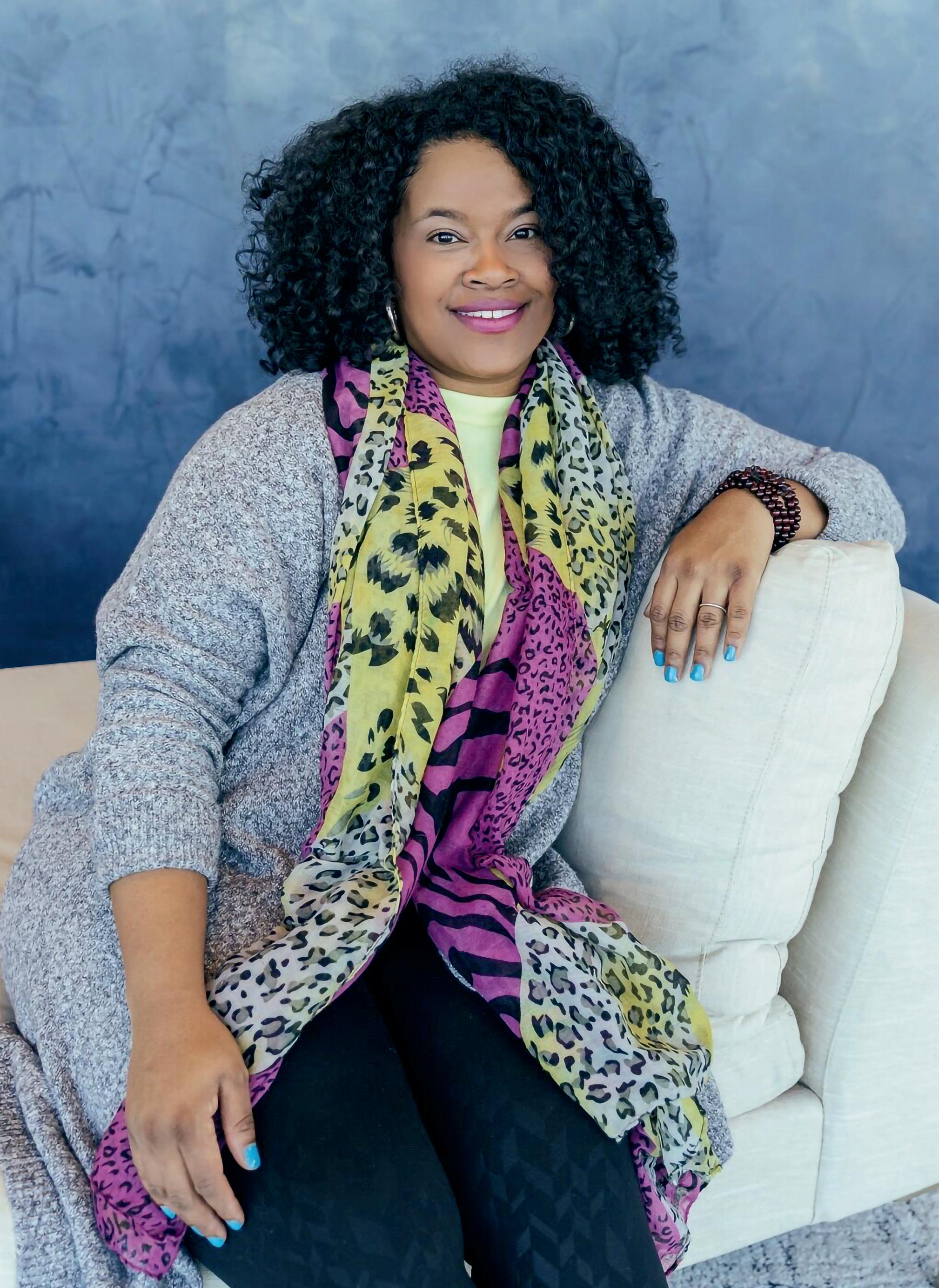
3 minute read
KATIES IN ACTION
PHOTO/KIM KOVACIK
Chanté Thurmond MAOL’14 is cultivating an era of inclusion
BY KAYLA FORBES MBA’17
Chanté Thurmond MAOL’14 has a not-so-secret weapon for stable profits, strong teams, and ethical, human-centered business. It’s equity, inclusion, and accessibility paired with universal, human-centered design principles.
Thurmond is the co-founder of The Darkest Horse, a next-gen Diversity, Equity, Inclusion, Belonging and Accessibility (DEIBA) consultancy firm. They help organizations explore the intersections of radical inclusion, emerging tech, the future of work, health, well-being and human potential. With clients like The Marketing Store (McDonald’s Happy Meal architects), Buoy Health, and theSkimm, they cultivate inclusion and equity when it comes to internal culture and organizational development, and universal, human-centered design when it comes to helping their clients build inclusive products and services.
“People are creating awesome apps for the future of healthcare, education, and work,” says Thurmond. “But the issue is that they’re not thinking holistically about the people using their products, services, and offerings. I think this is why a lot of businesses fall short, because they have not been challenged to think about community and social responsibility. You have to understand who the people using your technology and services are — and the communities they come from, the unique identities they hold or the beliefs they live by — in order for product brands to have longevity.”
Community well-being is the common thread through Thurmond’s career, which began in nursing and quickly led into community-based healthcare. She was working with the American Cancer Society when she enrolled in St. Catherine University’s Master of Arts in Organizational Leadership (MAOL) program.
“The MAOL program gave me an opportunity to expand on being a natural-born leader to being an effective manager and thought leader,” Thurmond says. “I was reminded that people are the most important assets of any company.”
Thurmond set a new course and successfully launched into executive search, working as a recruiter for businesses. She credits her MAOL professors with inspiring her to leverage her unique skills in a way that was comfortable for her.
She found success and satisfaction partnering with venture capitalists and early-stage technology startups throughout the U.S., finding opportunities to help them construct better products by building diverse teams with a stronger focus on inclusion and equity in talent acquisition, development, and retention. As a futurist, she foresees how a workplace’s culture and commitment to belonging will shape the employee experience and customer sentiment. She says we’ll be living in an era where organizations will be held accountable for their values.
Thurmond uses this to address work-life balance, which she believes is fleeting. It isn’t an achievable reality for most people — especially women — many of whom have been forced to stay home or work less during this pandemic to care for their families, she says.
“That’s really going to affect our technology, specifically the tech workforce, with everything going digital in the next few years,” she says.
Thurmond predicts that we are on the cusp of a new era of tech, which she offers is both an opportunity and a concern.
“What keeps me up at night is that we’re at the precipice of the Fourth Industrial Revolution,” Thurmond says. “If we don’t prioritize equity and accessibility, we’ll replicate the same kind of structural racism, oppression, inequity, and inaccessibility we’re experiencing now into new technologies and algorithms — literally programming limitations right into our future. That’s not okay.”
Thurmond has hope that we can change course to cultivate a more inclusive era. Through intentional practices, education, and scalable solutions, we can teach our youth and emerging leaders how technology affects our communities for generations to come. And we can dream of a better future in which needs are met for all humans — not through charity or back-breaking labor — but by inclusive, equitable, and accessible human-centered design.








